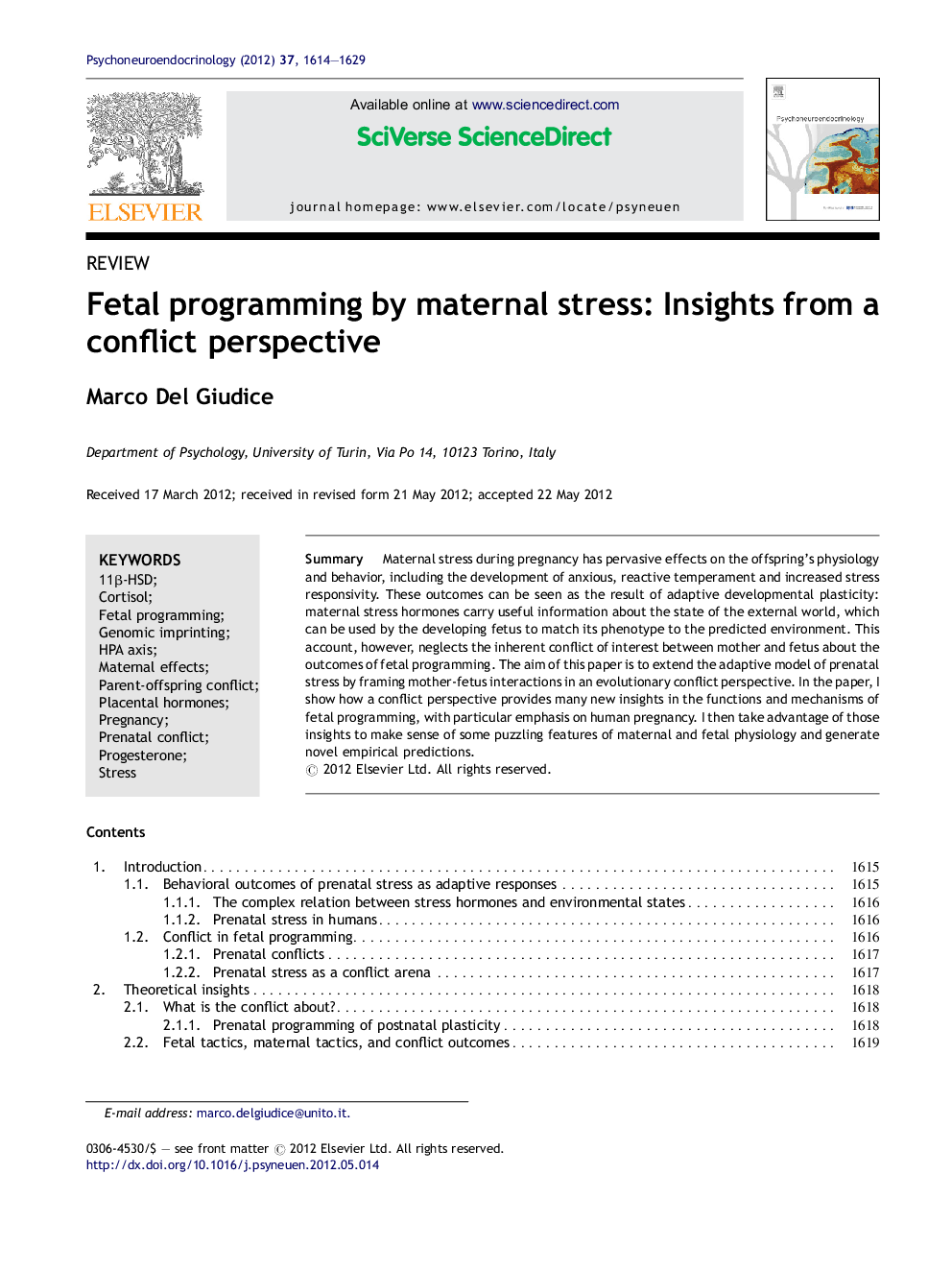| Article ID | Journal | Published Year | Pages | File Type |
|---|---|---|---|---|
| 10306849 | Psychoneuroendocrinology | 2012 | 16 Pages |
Abstract
Maternal stress during pregnancy has pervasive effects on the offspring's physiology and behavior, including the development of anxious, reactive temperament and increased stress responsivity. These outcomes can be seen as the result of adaptive developmental plasticity: maternal stress hormones carry useful information about the state of the external world, which can be used by the developing fetus to match its phenotype to the predicted environment. This account, however, neglects the inherent conflict of interest between mother and fetus about the outcomes of fetal programming. The aim of this paper is to extend the adaptive model of prenatal stress by framing mother-fetus interactions in an evolutionary conflict perspective. In the paper, I show how a conflict perspective provides many new insights in the functions and mechanisms of fetal programming, with particular emphasis on human pregnancy. I then take advantage of those insights to make sense of some puzzling features of maternal and fetal physiology and generate novel empirical predictions.
Keywords
Related Topics
Life Sciences
Biochemistry, Genetics and Molecular Biology
Endocrinology
Authors
Marco Del Giudice,
